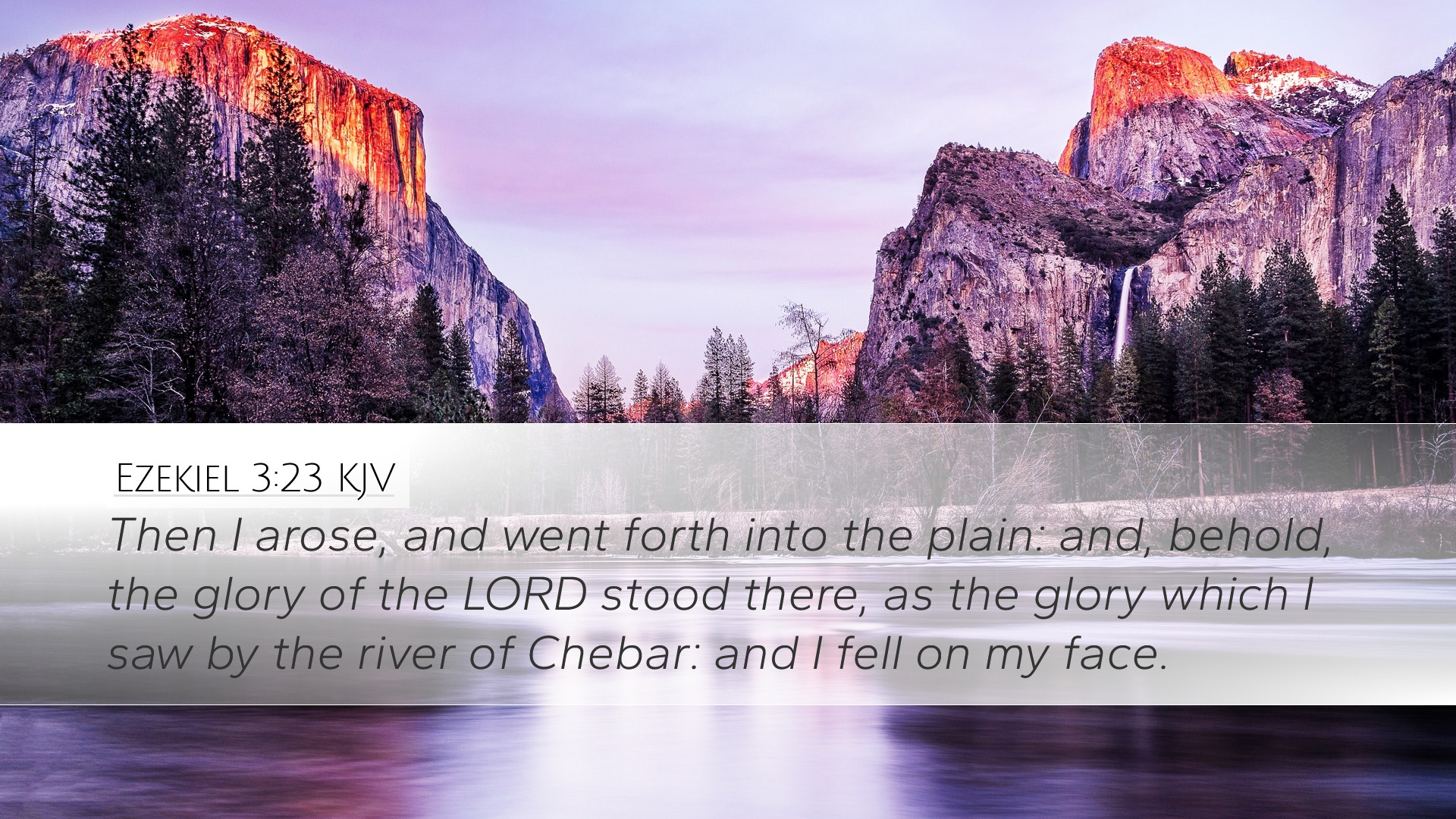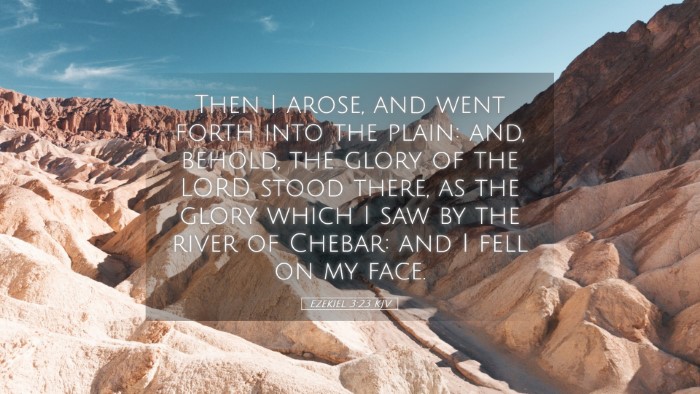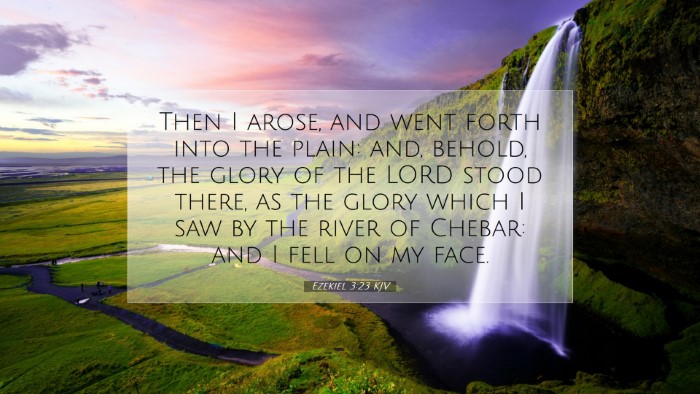Ezekiel 3:23 Commentary
Bible Verse: "Then I arose, and went forth into the plain: and, behold, the glory of the LORD stood there, as the glory which I saw by the river of Chebar: and I fell on my face."
Context and Background
Ezekiel, a major prophet of the Old Testament, was called to ministry during a time of great turmoil for the nation of Israel. His prophetic mission was to convey God's messages to a rebellious people who had turned from Him, leading to their judgment and exile.
This particular verse occurs in a section where Ezekiel is recounting his own commissioning and the profound revelations he received of God's glory. The phrase "the glory of the LORD" is significant throughout Ezekiel, indicating not only God's presence but also His sovereignty and holiness.
Insights from Public Domain Commentaries
Albert Barnes' Commentary
Albert Barnes notes that Ezekiel's experience captures the overwhelming presence of God. He observes that the "plain" signifies a place of decision, emphasizing the significance of the moment. Barnes suggests that Ezekiel's falling on his face is a natural reaction to the divine glory, illustrating the appropriate human response of humility and reverence before God.
Matthew Henry's Commentary
Matthew Henry elaborates on the themes of divine communication and prophetic duty. He underscores that Ezekiel's rising and subsequent falling on his face symbolizes the transition from receiving the Word of God to being obedient to that calling. Henry highlights that God's glory, as seen by the river Chebar, is a recurring theme and signals God's persistent presence even in times of judgment.
Henry points out that the glory of the Lord stands not just as assurance for Ezekiel, but as a reminder to the Israelites of God's covenant faithfulness, which was not extinguished by their unfaithfulness.
Adam Clarke's Commentary
Adam Clarke emphasizes the significance of the "glory of the LORD" that Ezekiel witnesses. He states that the presence of the Lord in the plain indicates God's readiness to meet with His prophet, reinforcing the concept that God initiates communication with humanity. Clarke also remarks on the physical reaction of falling on his face, which represents both awe and the weight of his prophetic calling.
Theological Implications
This verse serves as a powerful reminder of the holiness of God and the proper human response to His presence. In theological discourse, it encapsulates several core principles:
- The Nature of Divine Communication: Ezekiel’s encounter highlights God's desire to communicate with His people, inviting us to a deeper relationship marked by reverence.
- The Response to God’s Glory: Falling on the face is indicative of worship and submission, essential attitudes for any believer before the majesty of God.
- God’s Consistent Presence: The reiteration of God's glory reinforces the notion that, even during times of exile or judgment, God’s presence remains a source of hope and assurance.
- Prophetic Responsibility: Ezekiel's role as a prophet shows that encountering God's glory comes with the responsibility to proclaim His messages boldly, especially to those who have strayed from the truth.
Applications for Church Leaders and Believers
For pastors and church leaders, this verse serves as a call to maintain a posture of humility and receptivity to God’s voice. It emphasizes the importance of personal encounters with God, as such experiences empower them to lead and teach others effectively.
For lay believers, the message is clear: they are called to seek God’s glory earnestly and to respond with worshipful hearts. This verse encourages all believers to recognize divine encounters in their lives and to engage actively in the life of faith with reverence and commitment.
Conclusion
Ezekiel 3:23 encapsulates a profound moment in the life of a prophet who is both challenged and commissioned. Through insights from scholars like Albert Barnes, Matthew Henry, and Adam Clarke, we see a multifaceted understanding of God's glory, the importance of humility, and the weighty responsibility that comes with divine calling. As such, this passage serves as a timeless reminder for all who seek to engage with God and His Word earnestly.


